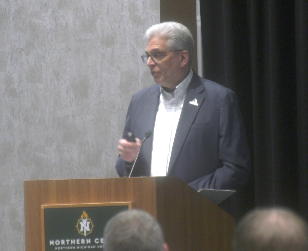LANSING, Mich. (WZMQ) – Michigan lawmakers are looking to increase penalties for crimes involving fentanyl. The bills were introduced by two Republican representatives and passed in the state House on Wednesday.
Current Michigan law includes no minimum sentence for a violation involving the trafficking of an opioid narcotic like fentanyl. The statute states that a violation involving less than 50 grams of a narcotic substance is a felony punishable by a sentence of up to 20 years. Lawmakers are looking to raise that bar by setting a 5-year minimum.
As a former paramedic, state representative Dave Prestin said he is a proud sponsor of the legislation. He said he has seen firsthand the damage that it can do, and so has his community. In the past three years, 5 boys from Rapid River have died because of an overdose of fentanyl
“In that community, it will take generations to heal that wound. It’s one of the most heinous drugs because it literally suppresses the central nervous system, and it stops a person from breathing, their heart continues to beat, the brain continues to function, but the respiratory drive just goes away,” Prestin said. “It’s a big game changer for us up in the U.P.. Being a border community right now, drug traffickers are literally moving their tradecraft into the U.P. due to the relaxed penalties as opposed to Wisconsin.”
The plan to crack down on fentanyl traffickers, House Bills 4255 and 4256, would increase penalties for fentanyl trafficking. Under the bills, the manufacturing, sale, or possession with intent to sell would bring the following sentences:
- 1000 or more grams – a sentence of 30 years to life with a $2 million fine.
- 450 to 1000 grams – a sentence of 15 to 40 years with a $500,000 fine.
- 50 to 450 grams – a sentence of 10 to 25 years with a $250,000 fine.
- Less than 50 grams – a sentence of 5 to 20 years with a $25,000 fine.
The plan also would impose a 10-to-40-year sentence for adults found selling fentanyl to minors.
One Democrat said the plan could target marginalized communities, and the focus should instead be on fentanyl education. Republican lawmakers insist that because Michigan has lighter sentencing guidelines, it has become a target for drug trafficking in the Great Lakes region.
The bills passed 65-40 and 64-41 in the House and are now on their way to the Senate for further consideration.










